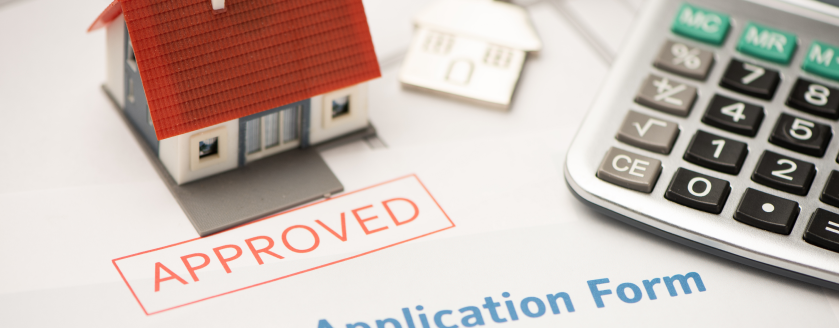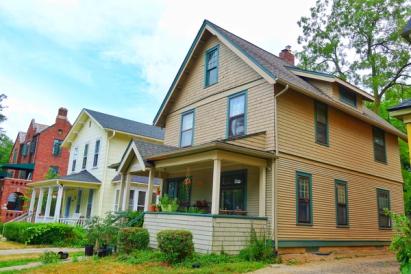From Sale to Sold: Your Guide to the “Pending” Status in Real Estate
Written by:
Lauren Hargrave
Lauren Hargrave
Personal Finance Writer
Lauren Hargrave is a writer from San Diego who focuses on technology, finance, and healthcare. She worked in finance for seven years before pivoting to a career in writing, and now, instead of putting numbers into spreadsheets, she writes about them instead.
See full bio
Fact Checked by:
Dan Silva
Dan is the Vice President of Marketplace Lending at Own Up. Throughout his career, he has held executive leadership positions in the mortgage and banking industry.
See full bio

Fast Links
- What is Pending Status in Real Estate?
- Are There Requirements for a Sale to be Pending?
- How Long Can a Home be Listed as Pending?
- What Happens During the Pending Status?
- What can Make a Home Fall Out of Contract Once it’s in the Pending Stage?
- What Can You Do if the Home You Want is in the Pending Stage?
- The Bottom Line
Whether you’ve been casually glancing at a real estate listing service or avidly hunting for your dream home daily, you’ve likely run into the phrase “sale pending.” And if you’ve seen this phrase – or one like it – attached to a house you want, you might be wondering how far into the transaction the seller is with this prospective buyer. It sounds inconclusive, right?
Unfortunately (or fortunately, depending on which party you are in the transaction), when a sale is pending, the transaction is actually pretty close to closing. The closing date of a transaction is the date the legal ownership of the property transfers from seller to buyer and the sale is complete.
While you might be tempted to submit an offer as an attempt to woo a seller away from a pending transaction, they may not be contractually allowed to even show you their house, let alone accept an official offer from another potential buyer.
In this post we’ll explain what it means when a home sale is pending, how long it typically takes for the transaction to move from pending to close (and what could make it take longer), instances when a pending sale might fall through, and when you might be able to submit an offer on a home with a pending status.
What is Pending Status in Real Estate?
When a home sale has a status of pending, it means that either the seller has accepted the buyer’s offer without contingencies and they have both signed (i.e. ratified) the purchase contract, or the contingencies that both buyer and seller agreed to in the purchase agreement have been satisfied or removed. In both instances, the sale has moved to the closing stage and is more likely to be successful than if it were listed as “contingent” or “under contract.”
If the seller accepts a purchase offer from the buyer without contingencies, then the property due diligence period, which includes checklist items like an appraisal, home inspection, and title search, will all happen during the pending phase.
If the seller accepts an offer with contingencies, the due diligence will likely take place while the house is listed as “contingent.” Once the contingencies are satisfied, the property status can move to “pending.”
Are There Requirements for a Sale to be Pending?
There are several types of contingencies that may need to be satisfied before a sale can move to pending status:
- An appraisal contingency, which states that an appraisal report conducted by a professional third-party must value the house at or above the sale price.
- A mortgage contingency, which states the home sale is dependent on the buyer securing acceptable financing (and will likely have details about what qualifies as an acceptable loan).
- A home sale contingency, which states the purchase of the new home is dependent on the buyer selling another property.
- An inspection contingency, which states the home purchase is dependent on an acceptable home inspection result.
How Long Can a Home be Listed as Pending?
A home sale can be “pending” for 30 to 60 days, depending on the purchase contract, the due diligence (if any) that needs to be conducted, the borrower’s ability to get financing, and more.
What Happens During the Pending Status?
Real estate transactions are anything but simple, even in the pending stage of a purchase. What happens during the pending stage of a home sale will be determined by a variety of factors, including the location of the property (state, county, etc), whether there is an HOA or condo community board that must approve the buyer, whether the real estate transaction is part of a short sale, and some other factors.
Here are the action items that may need completion during the pending sale stage (but not all will apply to every sale):
- If the property due diligence process wasn’t completed prior to home sale reaching the “pending” stage, the due diligence will be completed at this time.
- An attorney or title company will order the title report.
- The buyer will purchase an insurance policy for the home.
- The buyer will submit their mortgage application and work toward closing their mortgage. Typically the mortgage receives funding on the closing date of the sale.
- The buyer will work to close the sale of their current home if the purchase of the new home is contingent on that sale.
- If the sale is a short sale (which means the seller is selling their home to avoid foreclosure), the current mortgage lender on the home will work on approving the new buyer.
- If the home is located in a community with an HOA or a condominium co-op situation, the new buyer will also need approval from the board in order to complete their sale.
Typically during the pending stage, the seller can’t continue to market their home (that means they can’t schedule showings of the property) nor can they entertain formal offers. The only exception is when the purchase agreement includes a kick-out clause that allows the seller to continue to market the home until a specified time.
What can Make a Home Fall Out of Contract Once it’s in the Pending Stage?
Even though the pending stage of a home sale may seem close to closing, there are still conditions that can make the sale fall through. Here are some common reasons a home sale might not close even when it reaches the pending stage:
- The buyer can’t secure financing.
- Major repairs or other issues with the house come up during due diligence and the buyer and seller can’t come to an agreement on how to rectify those issues.
- The title report uncovers issues like delinquent liens.
- The buyer doesn’t receive approval (in the case of a short sale or HOA or condominium purchase).
- The buyers back out for personal reasons.
What Can You Do if the Home You Want is in the Pending Stage?
While it might be hard to hear, there’s not much you can do unless the sellers are contractually allowed to accept backup offers. The best way to find out is to work through your real estate agent. Ask your agent to contact the seller’s agent and ask two things:
- Are the sellers accepting backup offers?
- If not, can you let us know if the sale falls through? We’d like the first crack at making an offer before the seller puts it back on the market.
While it can be disappointing to see that a home you wanted to buy is labeled as “pending,” it might be best to keep house hunting. There are several reasons for this.
First, homes rarely fall out of contract at the pending stage, and if they do, it could be the result of a major issue with the house. Even the current buyer's inability to secure financing could reflect a low appraisal or other property issue as opposed to a borrower qualification issue.
One way to ensure that you successfully close on the house you want (when you find it) is to get pre-approved for a loan from a lender that can meet your needs and help you meet your goals. If you have more questions about the home buying process, check out our library of resources.
The Bottom Line
When a real estate listing moves to a pending status, it’s generally a sign that the sale of the property will close. If you’re the buyer, you are one step closer to owning your home. If you are still in the housing market, it may be in your best interest to move on to active listings that are still interested in pursuing potential buyers.


